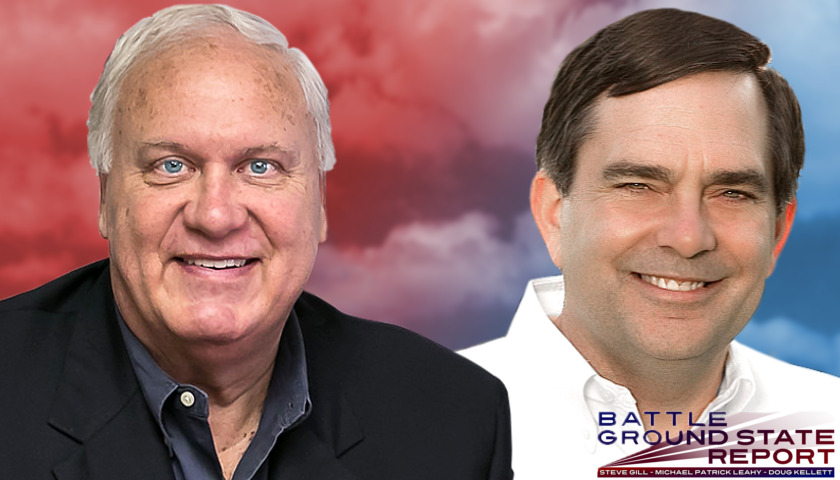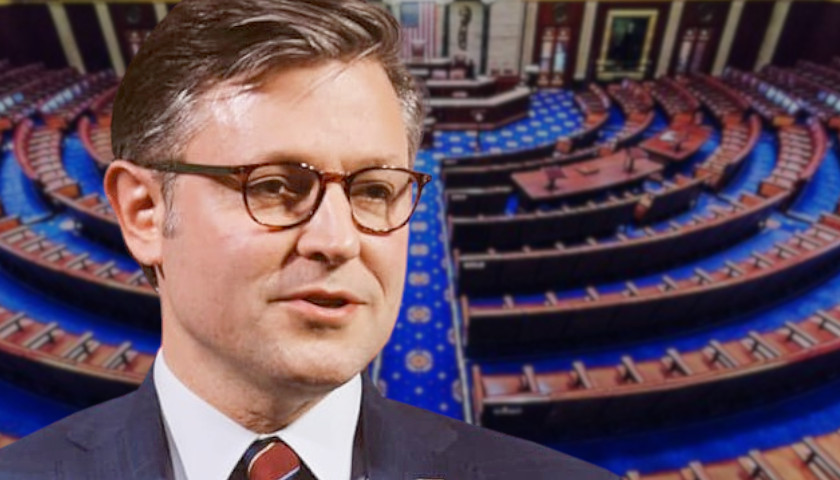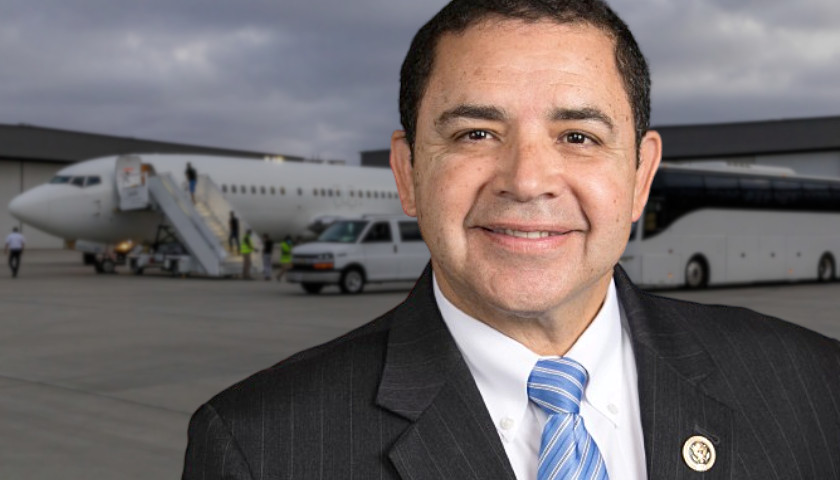On Friday’s Battleground State Report with Steve Gill, Michael Patrick Leahy, and Doug Kellett – a one hour radio show from Star News Digital Media in the early stages of a national weekend syndication rollout – the three hosts take a look at how there is a lack of competition in certain states that either swing heavy left and swing heavy to the right. They described how there is a lack of demographics that makes any issue less of an importance for the masses and that the focus has been on Washington instead of the real issues felt on the local levels.
Throughout the segment the men analyzed the extreme left’s domination of the Democratic party and how that’s potentially shooting themselves in the foot for the 2020 election. They concluded that another factor which may aide in that self sabotage would be Bernie Sanders’ call for a fifteen dollar minimum wage law.
Gill: You know we haven’t talked much about the impact on state House and state Senate races also. Because when you have for example, California that is just beyond the reach for Republicans to compete for in the Presidential race. The lack of Presidential candidate attention there, the lack of grass roots organization there does have an impact on state House and state Senate races. When you look the same way in red states the Democrats don’t really play there, and therefore, for example, in Tennessee, you’ve now got super majorities of Republicans controlling the state House and the state Senate. This kind of separate America into only seventeen states mattering has an impact on those state House and state Senate races and a lot of candidates who might be very good representation of their districts, their communities aren’t really getting an opportunity because everything is so divided politically that some states don’t even get the competitive battles locally that produces the best results. I mean, competition produces good results. When you have to compete it makes you put up your best candidates, it makes you put up your best policies, be clear. That’s where you build up the farm team for later, members of Congress and Senate and Presidents. And I think this division of red and blue being so deeply divided is hurting the farm team approach to getting good people even entering politics. Because if you’re in a dark blue or dark red district but you’re a Republican or a Democrat kind of in the minority there’s no even shot to get into the game.
Leahy: Exactly right. And you see that with that polarization, particularly on the left. What you see is the people that rise are from far left districts of blue states. Alexandria Ocasio Cortez and Maxine Waters, and they become the poster child for this crazy left wing set of policies and it further divides the country. Now, interesting enough, you see now let’s take a battle ground state like Pennsylvania. Little things that happen that can have some impact on 2020, but you see these things going on and you wonder, “Is that going to be significant or not?” Let me give you an example. Just this week, a Republican who was re-elected to the house of representatives in 2018 to a fifth term, Tom Marino. He announced his resignation. Now there’s going to be a special election.
Gill: He was only sworn in like two weeks ago!
Leahy went on to describe the potential impact of the resignation and how it could result in the politicization of Pennsylvania early on as a battleground state and will become a 2020 election disguised as a special election. Gill continued the discussion by describing the current divide and polarization and how it’s taking away local impact. He believed that Democrats seem to be so focused on every other issue other than what’s going on at the local level. He went on to question the lack of candidates addressing local issues and how those are the real issues of hard-working, law-abiding American citizens who are right now, taking a back seat to illegal immigrants and their rights.
Kellett: I mean yeah think about it back in the nineties right? There was a big move about the way districts were being created and written and the districts were drawn where you had to, it almost assured some Democrat would win a district, like a Maxine Waters or something like that. But on the other hand, it also, you know assured more Republicans to get elected. And I’m just wondering, kind of following along with what you’re saying, if maybe because districts are not anymore a broad sense of demographics, you know various neighborhood patterns and all of this. Is why you’ve got more to left and more to the right. You need not appeal in anyway to sort of the masses right? I mean you don’t have to appeal to a different sort of demographic to actually win the election because they’re not there.
Gill: And well and that’s certainly what we’re seeing with the Ocasio-Cortezs’ and the Bernie Sanders’. The extreme left is dominating the Democratic party and making that party move further to the left as these democrats are concerned about primaries. That may play well in California and New York. But the question is how does that play Ohio, Michigan, Pennsylvania. They move further and further away from those mainstream values that Trump appealed to. I think it hurts them in 2020. I hope they’ll keep doing what they’re doing. And we saw that a little bit with the Republicans when the Tea Party drove a lot of Republicans to move so far to the right that they lost that capacity to win those moderate, middle, mainstream voters on the issues that actually effect their lives. I think the Republican’s made a mistake in that way and they’ve kind of swung back. The populist candidacy of Donald Trump appealed to people’s pocket books, appealed to people’s values, appealed to people’s concerns about national security and border security, and their own communities security, the future for their kids. You’re not hearing Democrats talk about that. Now they’re wanting to push a fifteen dollar an hour minimum wage that Bernie Sander’s and the socialists think is the answer. I mean heck, make it a hundred dollars and hour then everybody will be rich if you believe that’s the answer. Fifteen dollars and hour minimum wage, we’ve already seen it in states and communities we’re they’ve opposed it, drives people out of work. And you’re going to see more kiosks at fast food restaurants. You’re going to see less opportunity. And there’s one estimate that two to three million Americans will loose their jobs as a result of some fifteen dollar an hour minimum wage. Because a kiosk is a lot less expensive than fifteen dollars an hour and you don’t have to worry about whether it shows up on time for work.
In conclusion, Leahy added that if this minimum wage standard is implemented it will eliminate a teenagers opportunity to get their first job. He added, that a teenager, in their fist job learns what it means to be on time, follow rules and perform duties which already is a problem to get that experience. He suggested that with this minimum wage, implementation will make it harder to get a job.
Kellett commented that he believes the fifteen dollars an hour may make sense some places but in other’s may put someone out of business and advocated that the markets should decide. “If you go to the kiosk like Steve was talking about at least we get our orders correct, but that’s about it,” concluded Kellett.
Listen to the full show:
– – –
Tune in every Friday morning and listen to The Battleground State Report with Steve Gill, Michael Patrick Leahy, and Doug Kellett.





